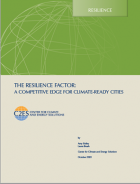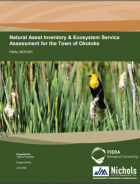Planning & Governance
Urban agriculture is more than chickens in the backyard. And agricultural land inside cities deserves more than the “Waiting to be Developed” label in local development plans. In this module we look at the municipal planning issues around local food and urban agriculture.
We know that Urban Agriculture is not a fad. Local Food is becoming a main stream activity. The focus on health, local community networks and a sustainable lifestyle are personal drivers. For urban communities, local urban food production and marketing offer:
- new channels for food,
- new economic activities for new immigrants and newcomers
- urban businesses that adds colour, life and interaction to its communities
For municipal planners, underestimating the role of food as a community asset is to miss the role of food as community glue. Festivals without food, hockey rinks without food, meetings without donuts and coffee. What are we missing? As planners we know the history of settlement in Canada grew from the food production capabilities of land surrounding our emergent cities and towns. Cultural colour is about ethnic food that becomes Canadian (e.g. ginger beef, a Calgarian invention). Where’s your agriculture and food strategy? And does it work? Does it say motherhood apple pie statements or does it make businesses and community efforts grow?
We want you to consider some tough questions. Why is agricultural land inside city boundaries a stand-in for “land to be developed”? Why is it so hard for those who want to farm idle public land inside cities to get access? What can the municipal government do about developing new market channels for food to eliminate “food deserts” and improve access to local food?
Unit 1
Planning urban agriculture elsewhere in Canada and the world
Jennifer Cockrall-King, author of Food and the City, introduces the topic of urban agriculture around the world. She takes us on a tour of Europe, the USA and Cuba before pointing out what is emergent in Canada. Jennifer Cockrall-King is a freelance journalist and author. Visit her blog for more.
- Video: Jennifer Cockrall-King - Urban Agriculture Meeting Demands in Unlikely Places: Resistance is Fertile - In her presentation to the Alberta Institute of Agrologists at their Banff conference, Mar. 27, Jennifer Cockrall-King introduces the topic of urban agriculture and the coming revolution away from long range, tasteless food. She starts by inventorying the results of large-scale agriculture and big box retailing. From her perspective, industrial food is a recombination of salt, fat and sugar managed by food chemists not food nutritionists. She then takes us on a journey of urban agriculture in Europe, the USA and Cuba (where urban agriculture is not a fad but core to Cuba's food self-sufficiency). She reviews what is emergent in Canada and some of our contributions to urban agriculture (e.g. SPIN farming (Small Plot Intensive farming), Saskatoon). Her point: this is beyond hobby gardening; it is how a new generation is approaching food and health.
- At the City-Region Studies Centre, University of Alberta, their Regional Planning Speakers Series in February, 2013, featured Jennifer Cockrall-King discussing the Future of Urban Agriculture in the Alberta Capital Region.
- Candace Vanin, a Land-use Specialist with Agriculture and Agri-food Canada, reviews the history of land-use planning in Alberta. She makes the case in this video that Sustaining Cities is an Agricultural Issue. She describes the reasons that agriculture is undervalued as a land-use and as an economic activity important to urban municipalities. She makes the case that when urban plans focus on economic sustainability the role of food production and its value chain needs to be included. Protecting agricultural land is not just about green belts, it is a requirement for a functional urban system. Candace Vanin makes the case for a new relationship between urban planners and agrologists.
Unit 2
Integrating community gardens into urban planning: Calgary's experience
Gael Blackhall, Coordinator for the Community Gardens Resource Network for the Calgary Horticultural Society, describes how cities can develop dynamic local communities by partnering with community gardens. She describes what are supports and processes for community garden start-ups in Calgary. The City of Calgary's support for community gardens is one of the reasons community gardens have exploded from 11 in 2008 to 140 in 2013.
- Video: Gael Blackhall - Partnership Roles, Community Gardens & The City of Calgary
- Video: Gael Blackhall - Calgary Community Gardens Resource Network
Now, dig into the resources below for examples of how other communities are working with community gardens.
The Calgary Community Gardens Resource Network has a detailed seven step process for initiating, funding, building and managing a community garden (Start A Garden).
Sustainable Food Edmonton offers Edmonton’s community garden program in association with Edmonton’s community leagues. (Starting a Community Garden)
Videos:
Gael Blackhall, Coordinator, Calgary Community Gardens Resource Network:
• You Get Windburn. Growth of Community Gardens in Calgary
• Community Gardens as a Community Development Tool
Inglewood Community Garden, Calgary:
• The Volunteers: Why We are Involved in Community Gardens
Anita Gregoire, Community Support Agriculture urban farmer, Edmonton:
• On Community Gardens Educating New Farmers
Other Resources:
• The Calgary Horticultural Society as the supporting agency for Calgary's Community Gardens development
• Calgary Community Gardens Resource Network
Unit 3
Municipal planning for urban agriculture
Jonathan McNeice has worked as an urban planner supporting the development of Edmonton's agriculture and food strategy "fresh". In the following series of videos, he describes what Edmonton and other cities should pay attention to in developing strategies to support local food and urban agriculture.
- Successful Models for Urban Agriculture Policy
- Policies for Entry of New Farmers into Urban Agriculture
- The Ideal Mix For Cities Around Urban Agriculture
- Agricultural Land Inside the City, The Tension
Jonathan McNeice recommends this book from the American Planning Association: Urban Agriculture: Growing Healthy, Sustainable Places.
Edmonton’s public and stakeholder engagement process to develop its agriculture and food strategy is outlined in a series of videos and presentations:
- Video: Jonathan McNeice: Developing Edmonton's Agriculture and Food Strategy (Nov. 2012, Food Secure Canada conference, at NAIT, Edmonton)
- Edmonton's Public Engagement during the City-Wide Food and Agriculture Project: Presentation (pdf) at the Canadian Institute of Planners Banff 2012 conference by City of Edmonton Planning Department, Larry Retzlaff and Sara Lundy and Jane Purvis, Urban Systems, Edmonton.
- Videos of City of Edmonton's stakeholder engagement process in 2012 and the "Food in the City" conference - Food and Agriculture Video Gallery
- Dr. Elizabeth Smythe, Professor, Concordia University College of Alberta., describes the timeline of citizen engagement around local food and urban agriculture in Edmonton and the origin of the Greater Edmonton Alliance. Video: Dr. Elizabeth Smythe - The Journey to Edmonton's Agriculture and Food Strategy: The Activist's View
Vancouver is a leader in urban farms. Here is the positive and negative of their urban agriculture processes:
- Vancouver’s Urban Farming Forum, 2011 with recommendations to the City of Vancouver for bylaw development for land access and business licences and recommendations to urban farmers to organize and build capacity and professionalism.
- Vancouver Food Strategy, Jan. 2013
- Vancouver’s Growing Food program
- Urban Farmers in Vancouver plant around municipal bylaw (2012)
- Two urban farms face closure due to pressure from developers (August 2013)
- SoleFood Street Farms Creates a Two Acre Urban Farm at Expo ’86 site with grants from Radcliffe Foundation, VanCity (credit union) and a free three year lease from land developer, Concord Pacific who gets a tax break by moving the property from a business classification to a “recreation and non-profit” classification. (2012)
- SoleFood Street Farms Changes Landscape and Lives (Nov, 2012)
Fresh Roots Urban Farms builds "community-engaged" market gardens in school playgrounds.
Unit 4
Developing local urban farms: The Toronto & Region Conservation Authority story
These three resources will provide you with some details about the Toronto & Region Conservation Authority urban farms.
Unit 5
Planning & governance: Tools and challenges
- What rules (and infrastructure) enable unused municipal reserve, public land and unused private land to be used for urban agriculture?
- How do we make urban spaces available for food production?
Browse below to see some examples of policies, bylaws and programs that support urban agriculture, and see some challenges from agrologists about the role of urban market gardens and farms in cities and the need to protect them to add economic opportunities and diversity to the urban environment.
Policies, Bylaws and Guides that professional planners have developed for urban agriculture and local food:
- BC’s Urban Farming Guidebook
- City of Vancouver’s Greenest City Fund
- City of Vancouver’s guide to backyard chickens
- City of North Vancouver’s guide to backyard chickens
- City of Vancouver’s beekeeping process
- City of Vancouver’s Farmers Market checklist for market development application (2013)
- City of Vancouver’s Urban Agriculture Guidelines for Developers (2008)
- City of Calgary’s Community Gardens process, Checklist and the City offers up to $5000 in in-kind support to new community gardens.
- City of Calgary’s criteria for Farmland Assessment. “Land not previously assessed as farm may qualify as farm for the next taxation year if the owner submits an application.”
Agrologists and Soils Scientists Challenge Agricultural Land Loss
Len Leskiw. P.Ag., is President and Senior Soil Scientist with Paragon Soil and Environmental Consulting Inc. He talked at the Alberta Institute of Agrologists 2013 conference about the horticultural operations in NE Edmonton and the value of agricultural land inside city boundaries. He asks the question: "Why are agrologists on the side-lines as our best soils in Alberta disappear from crop production?"
- Video: Leonard Leskiw: Land-use Conflicts in NE Edmonton
Brad Stelfox also makes the case that Local Food is a Rural Planning Issue. Agricultural Land Loss and Agricultural Land Fragmentation are a long term Achilles Heel for Alberta's capacity to produce local food. Brad Stelfox talks about history, the dramatic landscape changes with agricultural settlement in Alberta. He also talks about the future: the challenge of agricultural land loss and fragmentation and Alberta's ability to feed itself. Today, Alberta exports 70% of what it grows. In forty years, Alberta will be a net importer of food as urban sprawl and agricultural land fragmentation remove Alberta's most productive agricultural land.
- Video: Brad Stelfox - Loss of Alberta's Agricultural Soils to Competing Land Uses
Additional Resources
Additional Resources for Module 3
Find a wide range of additional resources related to Planning & Governance in this resource guide:![]() Growing Insights resource list 3.pdf
Growing Insights resource list 3.pdf





